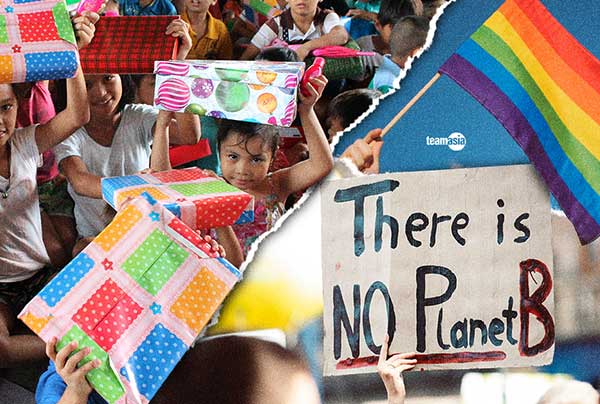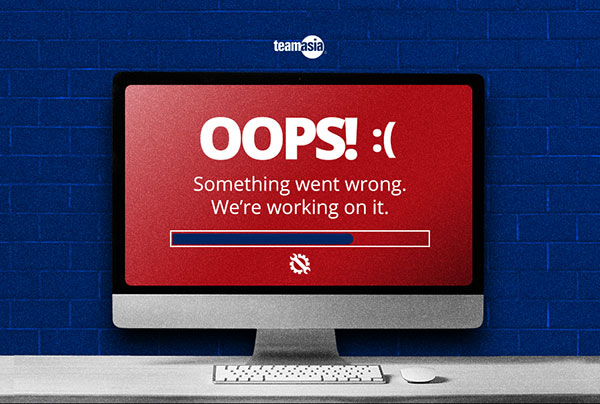CSR-led enterprise development helps address inequality, boosts productivity across sectors
LCF promotes entrepreneurial development as strategy for inclusive growth
(Manila, Philippines, July 09, 2013) — Quality and sustainable employment or livelihood is one of the basic indicators of inclusive growth, making it a top priority in the practice of corporate social responsibility, according to the League of Corporate Foundations (LCF).
Augusto Carpio III, LCF chairman and executive vice president and chief operating officer of Aboitiz Foundation, encouraged delegates to the 12th LCF Corporate Social Responsibility Expo to respond to the challenge of inclusive growth. “The reason we’re focusing on growth is because it is not inclusive. Only a small percentage has felt the growth,” Carpio said. “Right now we have inadequate infrastructure, [there are] cases of misuse of resources, and the lack of manpower. If all sectors collaborate, inclusive growth will be within our reach.”
The private sector is key to inclusive growth because it can mobilize the resources needed to create and expand social opportunities for the poor and vulnerable. This concept of inclusive business engages disadvantaged sectors as employees, producers, and distributors. “There is a great need to promote economic activity in sectors,” said United Nations Resident Coordinator Luiza Carvalho in her keynote address. “Public and private investments will lead to generation of wealth.”
Growth is typically concentrated in urban areas as companies build on their existing investments, while rural and remote communities remain stagnant. Nieves Confesor, executive director of the Asian Institute of Management-TeaM Energy Center for Bridging Leadership says businesses need to examine the question, “how do you intervene and get communities to become partners?”
Micro, small and medium enterprises (MSMEs) constitute roughly 99 percent of all entrepreneurial activities in the Philippines, making them a vital component in social transformation. In the plenary on inclusive government, Senator Paolo Benigno “Bam” Aquino IV stressed the roles of MSMEs, which he said could support localities by expanding employment. He cited microfinance, microinsurance, and youth entrepreneurship as possible interventions. “If the way we engage communities is positive is part of the way we do business we are assured of a positive way to sustain communities.”
As a social entrepreneur, Aquino launched in 2007 the Hapinoy Sari-Sari Store Program, an initiative that enriches micro-entrepreneurship through sari-sari stores in rural communities. Micro-entrepreneurs get access to capital store improvement, product sourcing and optimized cost of goods, training, and technical and sales support from the Hapinoy Store Doctor Program.
In the corporate setting, Generika Drugstore is an example of a company that seeks to balance profit and scaled social impact. “We saw that many Filipinos did not have access to quality generic medicines and were therefore suffering,” said Teodoro Ferrer, president of Generika Drugstore. Inspired by a strong sense of social purpose, Ferrer established Generika in 2003 as a national drugstore chain providing quality affordable medicine. Generika partnered with PhilHealth to assist in the universal health program to reach “the poorest of the poor.”
A program called Kape’t Buhay, meanwhile, allows farmers to become entrepreneurs, harvesting, roasting, and selling their own coffee beans. “It’s a good opportunity for farmers to earn more,” said Alvira Reyes, director for External Relations of Bote Central, Inc. “Farmers should have the opportunity to roast and directly link the market itself.” Kape’t Buhay simply provides the skills training and technology, leaving the farmers to harvest and sell freshly roasted coffee that is world class.
Multinational chains like Jollibee are also supporting small farmers to create sustainable professional partnerships. “We try to buy local and develop local sources so we can contribute to the economy and align [local suppliers] with the high quality standards Jollibee is known for,” said Susan Tanmantiong, vice president of Corporate Purchasing, Jollibee Foods Corporation.
In 2008, Jollibee partnered with Kalasag Farmers Cooperative, a group of yellow onion farmers in Nueva Ecija. The group had financial constraints, and had no leaders or background in institutional selling. Jollibee initiated a “win-win partnership” as the company realized that the produce matched their standards. The farmers were oriented on the company’s processes, which organized and professionalized their system and more importantly, led to a change in mindset.
“The only way that we can really get this done and be able to see economic growth is if we all work together,” shared Sen. Aquino. “The only way we can achieve inclusive growth is if we pitch in and improve the way we do business.”
With entrepreneurial development as one of the pillars of the League and its members, “we can reduce or minimize inequality by creating jobs, augmenting income, and provide risk prevention and social protection for all,” concluded Ma. Teresa Tumbali, Enterprise Development head of the UCPB-CIIF Finance and Development Corporation. “We have to include the poor in growth.”
The LCF CSR Expo, which was held on July 4 and 5, 2013 at the SMX Convention Center, is an annual gathering in celebration of National CSR Week. It brought together the Philippine business community, civil society, government, and various sectors to participate in discussions and developing effective strategies and programs to address specific social issues. The expo also featured an exhibit and a free CSR 101 lecture series for faculty and students.
About the League of Corporate Foundations
The League of Corporate Foundations is a membership association of over seventy corporate foundations and corporations, seeking to provide business solutions to social problems in the Philippines through Corporate Social Responsibility. Collectively, LCF represents many decades of private sector involvement strengthened with public sector partnerships and multi-sectoral approaches in various development sectors including arts and culture, education, environment, health, enterprise development and CSR research.





